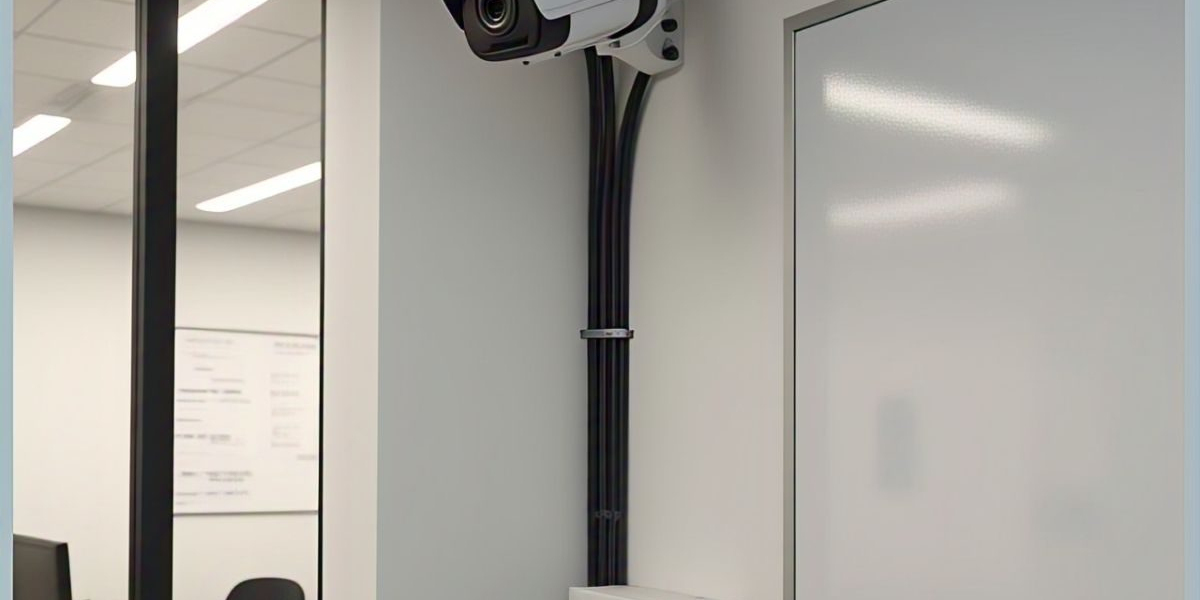Can CCTV Cameras Work Without Internet? Find Out How
Security cameras are essential for both homes and businesses, but many people wonder if internet access is a must-have. The answer might surprise you. CCTV cameras can function perfectly fine even without an internet connection—depending on the system type. Whether you're dealing with wired or wireless options, there's a lot to consider. From local storage to remote access, the presence or absence of Wi-Fi impacts how your cameras operate. In this guide, we’ll explore how CCTV works without internet, the pros and cons, and how you can still stay protected in offline mode.
1. Understanding How CCTV Works Without Internet
CCTV systems record footage using internal mechanisms. Traditional models rely on DVRs (Digital Video Recorders) or NVRs (Network Video Recorders) connected directly to the camera. These units don’t require Wi-Fi to store or process data. As long as the power supply is intact, the cameras will keep recording to a hard drive. This means you can continue monitoring your surroundings even during internet outages. The main difference without internet is the loss of remote access or cloud-based backup, but security remains intact.
2. Local Storage: Your Key to Offline Surveillance
When your cameras operate without an internet connection, they depend on local storage options like SD cards or hard drives. Most modern CCTV cameras come equipped with built-in SD card slots that record footage internally. Larger setups use DVR/NVR systems to store weeks of footage. This method ensures you still have access to recordings, even if you can’t view them in real-time remotely. To explore affordable and advanced systems that support local recording, browse this security camera store with a wide selection of offline-compatible models.
3. Wired vs. Wireless Cameras in Offline Scenarios
Wired CCTV cameras are most efficient in offline conditions. They transmit video through cables and store it directly on DVRs. Wireless cameras, while convenient, usually rely on Wi-Fi for live streaming. However, some wireless models include internal storage for offline use. If you're in a location with frequent network interruptions, a wired setup is your best option. It guarantees uninterrupted recording and stronger data integrity, making it ideal for businesses or remote properties.
4. Power Supply Still Matters
While internet may not be necessary, power certainly is. Offline CCTV systems still need electricity to function. In the event of a power outage, footage recording stops unless you have a battery backup or an uninterruptible power supply (UPS). Investing in a reliable power source ensures your system stays functional at all times. Some advanced models offer PoE (Power over Ethernet), which simplifies cabling and ensures a more stable connection.
5. Real-Time Monitoring Without Internet?
You can still view live footage on a local monitor connected directly to your DVR or NVR. Most DVR setups allow HDMI or VGA output to a television or monitor. This lets you watch real-time video feeds without internet. However, remote viewing via a smartphone app or PC will not be available. For full offline use, consider systems with a user interface that supports direct access, so you won’t miss a thing on your premises.
6. Can You Still Receive Alerts Without Wi-Fi?
Without internet, smart features like push notifications, mobile alerts, or AI-powered motion detection may be limited or inactive. However, some offline-capable systems offer alternative ways to notify you, such as alarms or LED indicators on the DVR. These physical cues alert you about any suspicious activity in real-time, even if your phone isn't connected.
7. Best Cameras That Don’t Require Internet
If you're searching for a reliable camera that functions well offline, consider models like the Dahua 6MP WizSense IR Bullet IP Camera. This camera is designed for powerful surveillance with or without internet. It includes infrared night vision, high-resolution imaging, and strong motion detection. Plus, it supports SD card storage, making it ideal for areas with poor or no internet. Explore this camera model for superior offline performance.
8. Remote Viewing: What You Miss Without Internet
Remote viewing is a major benefit of connected systems. Without internet, you can't access live footage or playback from your smartphone or laptop. You must rely on local playback via DVR or monitor. For those who travel often or manage property from afar, the lack of remote viewing could be a drawback. However, some hybrid systems allow footage to be transferred manually for later remote review.
9. How to Set Up a CCTV System for Offline Use
Setting up a CCTV camera to function without internet is straightforward. Begin by connecting your cameras to a DVR using coaxial or Ethernet cables. Ensure your DVR has a hard drive installed. Once powered on, the system should start recording automatically. Adjust camera settings directly from the DVR interface. For indoor use, choose cameras with night vision and wide-angle lenses. For outdoor setups, waterproof models work best.
10. Benefits of Using CCTV Without Internet
Using a CCTV system without internet can increase security. There’s less risk of hacking or unauthorized access when you're not connected to the web. It also reduces data costs and eliminates dependency on unstable networks. Businesses in remote areas or locations with limited connectivity benefit most. Additionally, these systems are usually easier to maintain and require fewer software updates.
11. Security in Remote Locations
Rural areas and construction sites often lack stable internet. For such locations, offline CCTV is essential. Cameras with SD card storage and high-resolution recording offer complete surveillance without needing a data connection. You can check recorded footage on-site and transfer it via USB if needed. For recommendations tailored to remote or temporary locations, visit this detailed guide for setup tips and product suggestions.
12. Hybrid Systems: The Best of Both Worlds
Hybrid CCTV systems offer offline recording and optional internet-based features. These setups work seamlessly in both environments. You can monitor locally through a monitor and enable cloud storage or mobile access when a network is available. Such flexibility is ideal for fluctuating network environments and lets you upgrade your security setup later without replacing equipment.
13. Final Thoughts: Choose the Right Setup
Whether you’re protecting a warehouse, home, or retail space, understanding how CCTV works without internet helps you make the right choice. Offline systems offer reliability, local storage, and minimal vulnerabilities. If you're not interested in remote monitoring or cloud features, these cameras will serve you well. Choose models that support SD cards or DVRs, and consider power backup for uninterrupted protection. Always match your system to your property’s needs and connectivity level.
FAQs: CCTV Without Internet
1. Can I install a CCTV camera without Wi-Fi?
Yes, many CCTV cameras operate independently from Wi-Fi, especially wired systems with DVRs.
2. Will my CCTV record if the internet goes out?
Absolutely. Cameras with local storage will continue recording during internet outages.
3. Do I need an app to use offline CCTV?
No, offline systems are controlled via DVR or built-in software, not through mobile apps.
4. Is offline CCTV more secure?
Yes, since there's no internet, the system is less vulnerable to hacking or cyber threats.
5. How do I view recordings without internet?
Connect the DVR to a monitor or use SD card footage for playback directly.
6. Can wireless cameras work offline?
Some can, if they support SD card recording and don’t rely solely on cloud storage.








